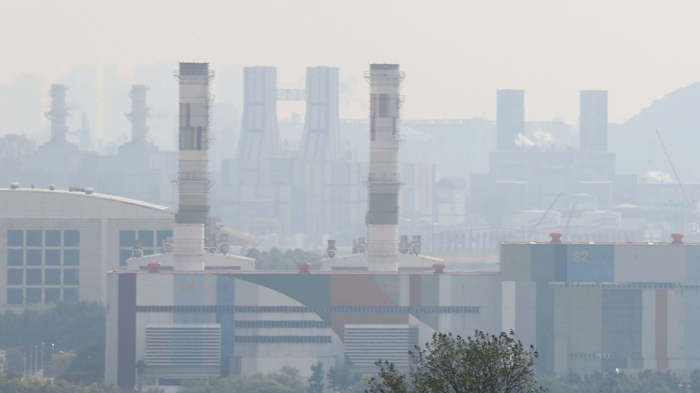Carbon neutrality
SK, Samsung accelerate S.Korea’s CO2 capture biz growth
SK E&S is working on a CCS project in East Timor; Samsung Eng is participating in S.Korea-Malaysia CCS project with others
By Apr 07, 2023 (Gmt+09:00)
2
Min read
Most Read
LG Chem to sell water filter business to Glenwood PE for $692 million


KT&G eyes overseas M&A after rejecting activist fund's offer


Kyobo Life poised to buy Japan’s SBI Group-owned savings bank


StockX in merger talks with Naver’s online reseller Kream


Meritz backs half of ex-manager’s $210 mn hedge fund



Samsung and SK, South Korea’s two largest conglomerates, are speeding up the growth in the carbon capture, utilization and storage (CCUS) business of the country based on overseas projects, raising hopes for the commercialization of the technology in the local market in the near term.
The government also aims to support the development of source technology, demonstration and commercialization for the creation of a new growth engine with a target of carbon neutrality for Asia’s fourth-largest economy.
“The authorities will actively assist companies’ carbon-neutral green growth activities for the development of more technologies that challenge the future,” said Kim Sang-hyup, head of the presidential committee on carbon neutrality and green growth.
Most South Korean companies have been reluctant to start the CCUS business as the feasibility of the industry’s technology, a key for carbon neutrality, was not verified. The CCUS industry consists of carbon capture and storage (CCS) and carbon storage and utilization (CCU), which refer to the process of capturing carbon dioxide and either storing it permanently or utilizing it by converting it into valuable products such as fuels and chemicals.
Overseas CCS projects often require agreements between countries as those projects work on the storage and transportation of CO2 across borders while securing economics through massive demonstration tests.
Samsung and SK, however, pushed ahead with the development of the industry, adding to expectations that the CCUS technology will be commercialized in the next two or three years in South Korea.
EAST TIMOR, MALAYSIA
SK E&S Co. is leading the project to transform production facilities at the Bayu-Undan gas field, located south of East Timor, into a CCS plant and a global carbon-neutral hub. The field, in which the natural gas business unit of South Korea’s No. 2 conglomerate SK Group has a 25% stake, is scheduled to stop operation this year.
The company also aims to reduce its energy consumption to 60% of the existing level by developing its own source technology to increase carbon capture capabilities. Its affiliates including SK Materials Co. joined such a move.
SK Group has been endeavoring to develop carbon capture technology as its businesses include sectors with much carbon such as refinery, gas, energy and chemicals.
Samsung Engineering Co. is also participating in a cross-border project, the so-called Shepherd CCS, that transports carbon captured in South Korea to Malaysia for storage.
Samsung is handling an export hub, while GS Caltex, South Korea’s No. 2 refiner, is set to capture CO2. POSCO International, the general trading and energy exploration unit of South Korea’s steel giant POSCO Holdings Inc., will transport it and SK Earthon Co., an oil development subsidiary of SK Innovation Co., will store it.
Write to Yong-Hee Kwak at kyh@hankyung.com
Jongwoo Cheon edited this article.
More to Read
-
 Carbon neutralitySix major Korean firms tie up with Petronas for carbon biz
Carbon neutralitySix major Korean firms tie up with Petronas for carbon bizAug 03, 2022 (Gmt+09:00)
1 Min read -
 Carbon neutralitySK E&S to start business of carbon storage in depleted gas fields
Carbon neutralitySK E&S to start business of carbon storage in depleted gas fieldsMar 10, 2022 (Gmt+09:00)
1 Min read
Comment 0
LOG IN


